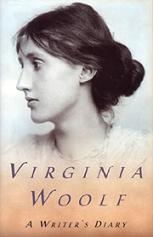Booker Prize judge made a bit of a silly ass of himself responding to Kim Stanley Robinson’s challenge to the Booker Prize about the lack of science fiction on its short lists, by saying:
John Mullan, Naughtie’s fellow judge for this year’s prize and professor of English at University College London, said that he “was not aware of science fiction,” arguing that science fiction has become a “self-enclosed world”.
“When I was 18 it was a genre as accepted as other genres,” he said, but now “it is in a special room in book shops, bought by a special kind of person who has special weird things they go to and meet each other.”
He’s so wrong. Science fiction has always been “in a special room in book shops, bought by a special kind of person who has special weird things they go to and meet each other”! Even when he was eighteen this was the case unless he was that age sometime in the early thirties or so, science fiction cons have been around longer than he has. It has never been fully seen as acceptable literature by the sort of people who sit in Booker Prize juries and there has never been “a genre as accepted as other genres” though admittedly there have been times when mainstream authors and critics have been more in tune with it than others.
The responses to such backhanded snobbery are predictable. As seen in the comments to Ken’s post on this, many science fiction fans are defensive and hurt and respond like a teenager bounced from the Kool Kids Klub — “I don’t want to join your smelly club anyway”. Some, as seen on Torque Control ignore the insults and earnestly try to explore the question of why the Bookers boycott science fiction and what to do to change it. Finally, there are the people who’ve seen it all before, amused both by the snobbery and the philistine defensiveness of many fans.
For myself, I’ve sort of lost that reflexive defensiveness, where you take out your annoyance at the casual dismission of science fiction by erm casually dismissing everything else, but I don’t like to entirely dismiss this reflex either as seem to be the trend amongst sections of online fandom. Look at how grownup and above it all we can be, not like those stinky nerds still living in their mommy’s basement who actually take all that stuff seriously. In the high school reenactment society that’s fandom, that’s just pandering to the jocks by making fun of your fellow nerds, not realising they’re laughing at you as much as with you…
